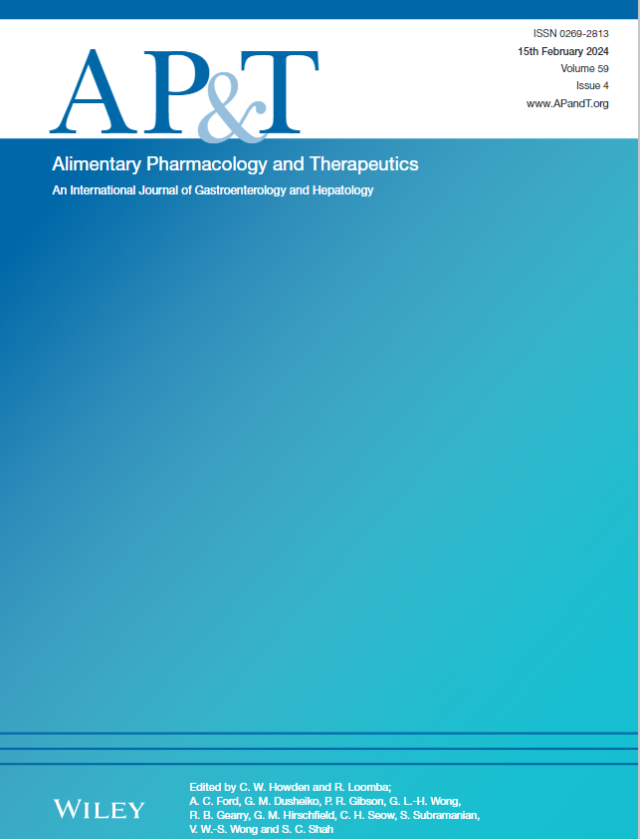Meta-Analysis: Pregnancies With Inflammatory Bowel Disease Complicated by Intrahepatic Cholestasis of Pregnancy
Abstract
Background
Inflammatory Bowel Disease (IBD) requires maintenance of remission during pregnancy to avoid poor maternal and fetal outcomes. Intrahepatic cholestasis of pregnancy (ICP) could also increase these risks.
Aims
To examine the prevalence of ICP in pregnancies with IBD and associations with thiopurine exposure.
Methods
An electronic search of MEDLINE, EMBASE, and EMBASE Classic databases using search terms for IBD and ICP from inception to 10th September 2024 was performed. Studies involving pregnant adults with a confirmed diagnosis of IBD reporting ICP were included. Prevalence and event numbers for ICP were pooled using a random effects model.
Results
We identified two case reports, a case series of eight cases, and three cohort studies. Pooled prevalence of ICP in 1603 pregnancies with IBD was 3% (95% confidence interval [CI] 1.0%–7.0%). One cohort study reported that the prevalence of ICP in IBD was significantly higher compared to the general population (odds ratio [OR] 3.08 [95% CI 1.11–8.56], p = 0.039). Meta-analysis showed that thiopurine exposure was associated with an increased risk of ICP, OR 6.65 [95% CI 3.10–14.25]. One cohort study showed that, compared to non-IBD controls, the incidence of ICP was increased in thiopurine exposed pregnancies (OR 7.55 [95% CI 2.52–22.57] p < 0.001) but not in non-exposed pregnancies (OR 1.41 [95% CI 0.40–4.92], p = 0.75).
Conclusions
Patients with IBD have a higher risk of ICP compared to the general population. Thiopurine exposure in patients with IBD is associated with an increased risk of ICP. Clinicians should monitor pregnant patients with IBD exposed to thiopurines for symptoms of ICP.


 求助内容:
求助内容: 应助结果提醒方式:
应助结果提醒方式:


